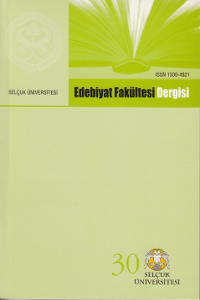Öz
Kuzey Kafkaslarda halkların büyük çoğunluğu Müslüman Türk asıllıdır. Özellikle bugünkü Dağıstan Özerk Cumhuriyeti, o zamanlar Azerbaycan’ın toprak parçasıydı. Kuzey Kafkaslarda yaşayan Türkler, Rus emperyalizmine ve akabinde Ermeni zulmüne karşı tek cephe olmuştur. Öte yandan Birinci Dünya Savaşı sırasında Türk İslam Ordusunun Kafkas harekâtı ile yeni gelişmeler baş göstermiştir. Kuzey Kafkaslar’daki gelişmeler üzerine, Dağıstan’daki Türklerin millî bir devlet kurma çabaları giderek yoğunlaştı. Bu gelişmeler çerçevesinde Kuzey Kafkaslar’daki bütün Müslüman Türk kavimler, Dağıstan Türklerine güvenerek, Ruslardan bağımsız hareket etmeye çalışmıştır. 11 Mayıs 1918’de kurulan Kuzey Kafkas Cumhuriyeti Osmanlı Devleti tarafından da tanınmıştır. Öte taraftan bu tanınma Bolşevik Rusları çok kızdırmış olacak ki, Bolşevik Yönetiminin Dışişleri Komiseri K. V. Çiçerin, Osmanlı Devletinin Moskova Büyükelçisine bir protesto notası verdi. Dağıstan topraklarının Rusya’ya ait olduğunu, kurulan cumhuriyeti tanımayacaklarını bildirdi. Bu notayı dikkate almayan Osmanlı Devleti, Kuzey Kafkas Cumhuriyeti ile barış ve dostluk anlaşması imzaladı. Anlaşmaya göre Osmanlı Devleti, Kafkaslara siyasi ve askeri yardımda bulundu ve dışarıdan gelecek tehlikelere karşı savundu. İlk yardım ve savunmasını da 20 Eylül 1918’de gerçekleştirmiştir. Böylece Türk Kafkas İslam Ordusunun, Kuzey Kafkaslar’daki siyasi ve askeri harekât planı gerçekleşmiş oldu. Çünkü Osmanlı İmparatorluğunun Kafkasya siyasetinde Müslüman Türklerin dini ve millî hisleri esas temel oluşturmaktaydı.
Anahtar Kelimeler
Dağıstan Rusya Kuzey Kafkasya Azerbaycan Kafkas İslam Ordusu.
ABOUT THE OPERATION OF TURKISH ISLAMIC ARMY IN THE NORTH CAUCASUS (DAGESTAN) (Under the Luminary of Archive Documents – 1917–1919)
Öz
The majority of the people who lives in The North Caucasus are the Muslim Turks intrinsically. In that time especially today's Dagestan Autonomous Republic was the piece of land of Azerbaijan. Turks who were living in the North Caucasus formed a front against to Russian imperialism and persecution of Armenians subsequently. At the same time appeared new events during the First World War, with the operation of the Turkish Islamic Army in the Caucasus. Within this events in the North Caucasus, intensified efforts of Dagestan Turks to form independent national state. Because all of these developments, all Muslim Turkish tribes in the North Caucasus were trying to act from the Russians independently relying on Turks of Dagestan. The North Caucasian Republic when founded in 11 May 1918, legitimatized by the Ottoman Empire too. Because of this legitimatizing annoyed the Bolshevik Russians, the Commissioner for Foreign Affairs of the Bolshevik Management K. V. Chicherin noted as protest to the Ambassador of the Ottoman Empire in Moscow; notified that the territory of Dagestan belongs to Russia and they won’t legitimatize the new founded republic. And the Ottoman Empire paid no attention this note, and signed an agreement of peace and friendship with the North Caucasian Republic. According to the agreement the Ottoman Empire will aid to the Caucasus political and military, and will defend against threats from outside. And sent the first help and defence in 20 September 1918. Thus materialized the plan of Caucasus Islamic Army for the North Caucasus. Because religious and national feelings of Muslim Turks was constituting the fundamental basis of the Ottoman Empire for the politics about the Caucasus
Anahtar Kelimeler
Dagestan Russia North Caucasus Azerbaijani Caucasian Islamic Army
Ayrıntılar
| Birincil Dil | Türkçe |
|---|---|
| Konular | Arkeoloji |
| Bölüm | Makaleler |
| Yazarlar | |
| Yayımlanma Tarihi | 13 Şubat 2015 |
| Gönderilme Tarihi | 13 Şubat 2016 |
| Yayımlandığı Sayı | Yıl 2013 Sayı: 30 |
Selcuk University Journal of Faculty of Letters will start accepting articles for 2025 issues on Dergipark as of September 15, 2024.


